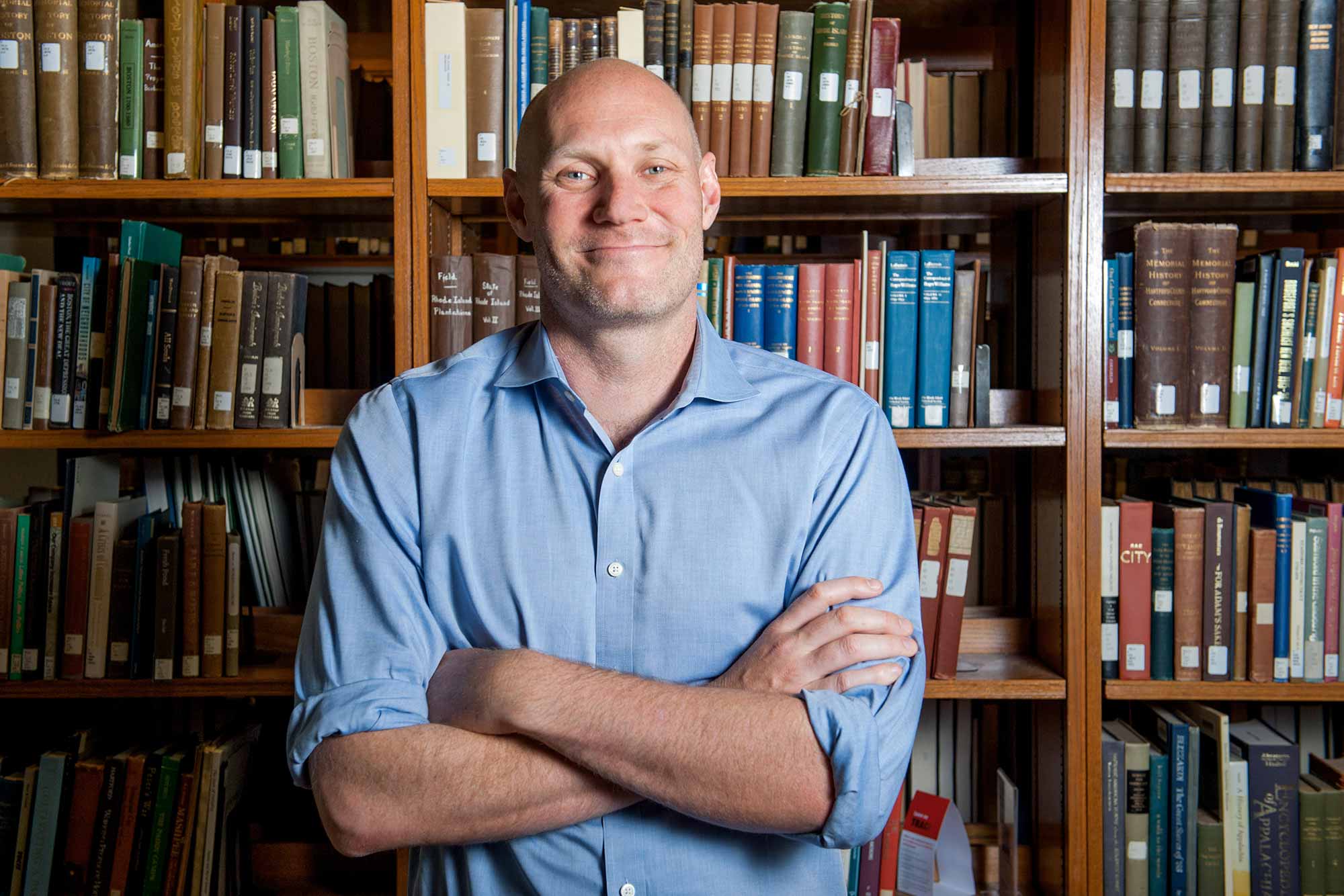Outside the Classroom“Mini-scope” Reveals Workings of the BrainBergstrom, Colleagues Spend Summer in Neuroscience Lab
Outside the Classroom“Mini-scope” Reveals Workings of the BrainBergstrom, Colleagues Spend Summer in Neuroscience Lab
One of the best ways to study the brain is to track its activity. Assistant Prof. of Psychological Science Hadley Bergstrom has worked to develop a tiny microscope that enables him to do so, and this summer he and two colleagues and a Vassar student conducted research with these “mini-scopes” that could lead to a fuller understanding of certain brain disorders.

Bergstrom, who has been teaching at Vassar since 2015, directs Vassar’s Memory Neuroscience Lab. Part of his research involves developing techniques for visualizing and manipulating brain activity as it relates to memory storage. “Knowledge about how the brain stores memory is vital to
This summer, Bergstrom collaborated with a student, Gaby Coste ’19, and Assistant Prof. of Psychological Science Lori Newman and Assistant Prof. of Psychological Science Bojana Zupan, building mini-scopes capable of monitoring neuronal activity deep in the brain in real time. In another summer project, Daniel Lee ’19 and Bergstrom further refined a technique for turning neuronal activity on and off. Bergstrom explained that both techniques aid researchers in exploring how brain activity relates to behavior.
“Neuroscience is an exploding field—it’s multidisciplinary.”
Bergstrom said collaborating with students on brain imaging techniques is something that’s extremely rare at a liberal arts college. “It’s the sort of thing you might do in graduate programs or in medical school, but we’re doing it here at Vassar,” he said.
Bergstrom said his work is stimulating for two reasons. “First, neuroscience is an exploding field, and it’s multidisciplinary,” he said. “Biology, chemistry, physics, computer science and psychological science all converge here.
“And second, my students aren’t just smart; they’re extremely motivated and well-rounded, and they’re able to overcome lots of obstacles as we conduct our research,” he continued.
“It’s the sort of thing you might do in graduate school or medical school, but we’re doing it here at Vassar.”
In June, Bergstrom co-published a paper on fear memory in a leading behavioral neuroscience journal with five students—Gabby Pollack ’17, Serena Lee ’18, Miranda Scarlatta ’19 and Anya Scott-Wallace ’20—who had conducted research under the auspices of Vassar’s Undergraduate Research Summer Institute in 2016 and 2017.
Bergstrom says he likes to tell his students that psychology is for everyone. “I tell them, ‘Everybody’s a psychologist,’” he said. “In a relationship, one of the most important things you want to do is figure out what the other person is thinking. That’s what psychology is all about.”